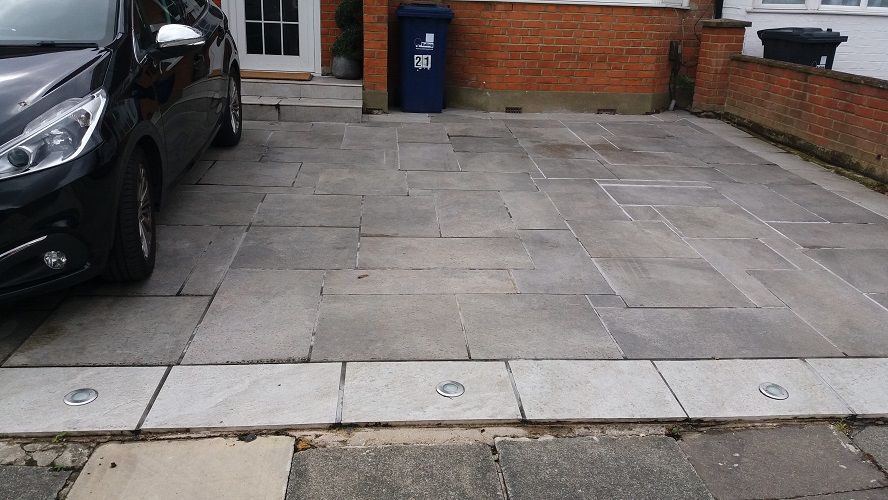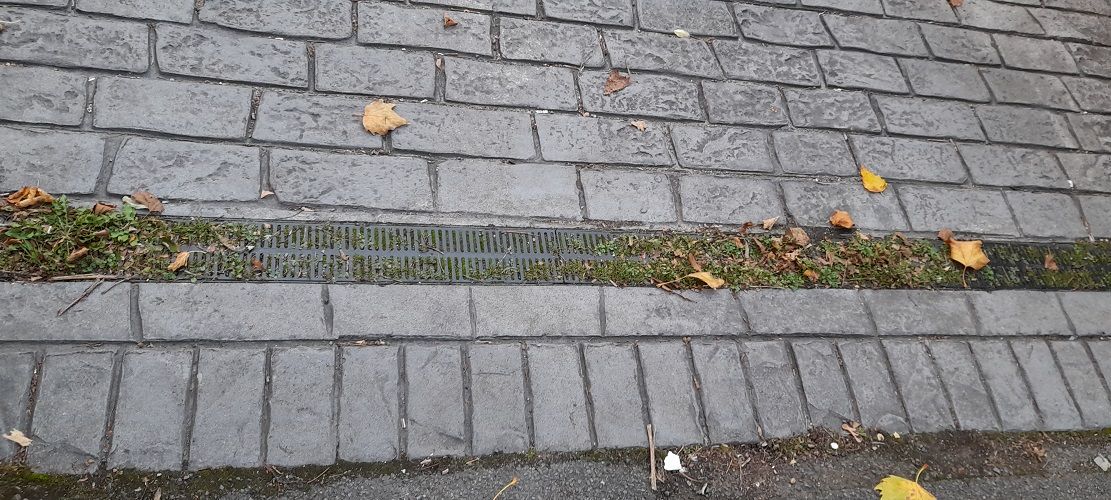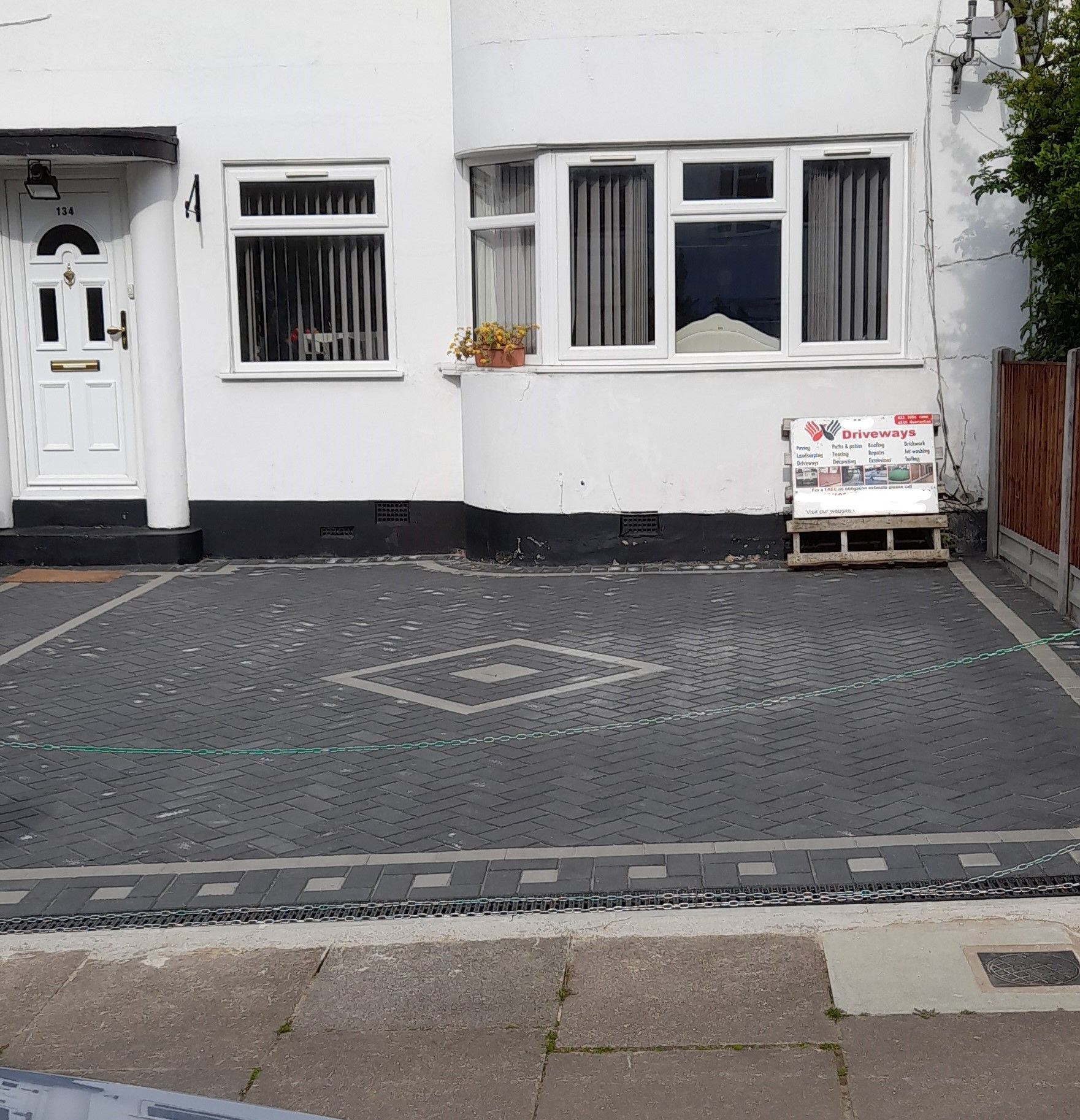
The National Infrastructure Commission report
The report warns that “The spread of impermeable surfaces – such as the paving over of gardens – could move another 65,000 properties into a high-risk area.”
That’s on top of the 325,000 English properties the NIC estimates being at high risk from flooding. And that’s not from rivers bursting their banks, but from too much surface water being unable to find anywhere such as gardens to soak into, because our townscapes are increasingly paved over.
This is surface water flooding, i.e. localised flooding caused by heavy rain and runoff. After so many years of being ignored, it’s amazing that the report recognises this:
But it doesn’t get to the root of the problem
In its press release, the NIC said “the first step is to stop adding to the problem by limiting the knock-on effects of urban spread on existing drainage systems”. That is a good start, but it does not get to the root of the problem.
The full report goes into the front gardens situation on pages 28-29, but again without really getting to the underlying cause. This is because the NIC doesn’t seem to understand that the current regulations actually encourage this very paving.
The Town and Country Planning (General Permitted Development) (Amendment) (No.2) (England) Order 2008 was introduced after serious flooding in several English cities in 2007. While it attempts to promote permeable surfaces, it also allows householders to cover their entire front garden with a totally impermeable surface provided there is “provision for run-off”.

In practice, as our research shows, such “provision for run-off” is often ignored.

Or if some kind of drainage channel is put in, it’s often so tokenistic or poorly installed that it quickly gets blocked and is therefore largely useless.

This is happening all the time in London suburbs and elsewhere. The otherwise positive switch to electric vehicles is making things worse, as yet more front gardens are converted for charging. And contractors spotting the opportunity are trawling the streets, offering parking, paving and tidiness. Unsurprisingly, householders are often persuaded to go for more or less complete hard surfacing.

And crucially, this not only creates flood risk but also many other problems – see our "It's not just flooding!" blog
It’s positive that the NIC report does recognise that surface water flooding is a local problem. The report’s Foreword says:
“Surface water flooding is the flood risk we know the least about. It is highly localised, and hard to predict. A highly local problem needs local solutions.”
But it then suggests possible roles for local authorities in policy change and enforcement of regulations on front gardens.
In our view, it’s naïve to expect local authorities to introduce stronger policies on this.
After near 30 years of national policy allowing complete concreting and paving (ever since pavement crossovers became permitted development under a Conservative Government in 1995), local councillors and voters are hardly likely to accept a more restrictive regime.
Similarly, requiring local authorities to enforce new regulations is pie in the sky. In the London Borough of Ealing alone there are around 75,000 front gardens! Even the existing regulations are largely unenforced – there are simply no dedicated resources to do so – so what hope for new ones?
Government wakes up?
On 10 January 2023 the government announced that it will consult on whether to making sustainable drainage systems (SuDS) mandatory for new development from 2024.
This followed a review which found – as many predicted would be the case - that addressing flood risk through the land use planning system is not working, not least because of inadequate design and construction standards and a lack of proper checks on whether a proper job has been done.
What next?
In our view, the SuDS consultation which Defra will undertake should include the harm and risk caused by the loss of front gardens, and also how the planning system has been usurped to allow more loss of soakaway space.
The NIC’s recommendation (p29) is that “Government should undertake a comprehensive review of the effectiveness of all available options to manage unplanned increases in impermeable (or hard) surfaces, and their costs and benefits.”
This is important, but will the Government accept this recommendation and undertake such a review? And if it does, will it really listen to the dismal front garden story? Or just continue to overlook it?
